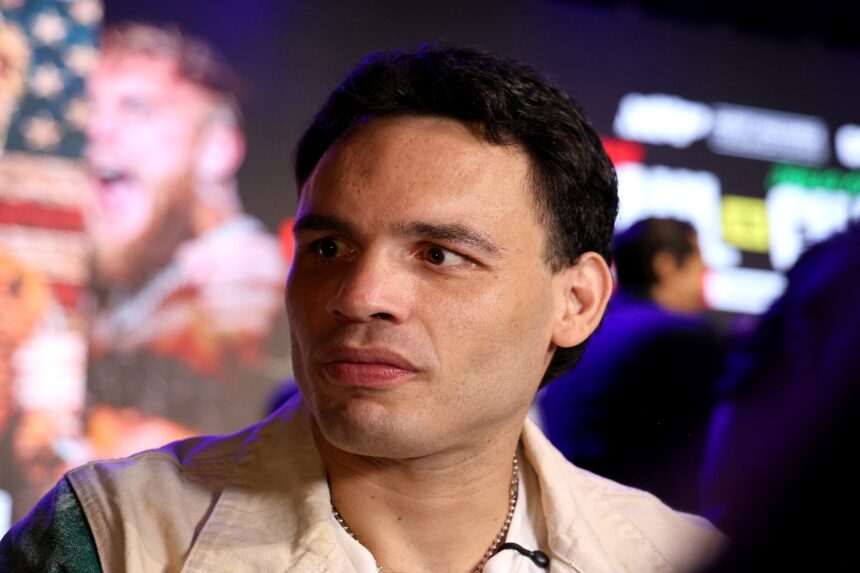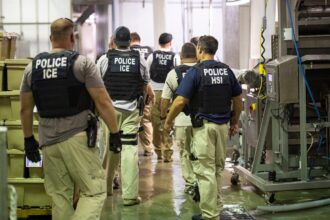The famous boxer Julio César Chávez Jr., son of the legendary Mexican champion, was deported from the U.S. in July 2025 to face charges in Mexico for organized crime and arms trafficking.
After his arrival, a federal judge in Hermosillo, Sonora, sentenced him to trial on August 24 and granted him conditional release, subject to strict measures such as restriction of movement and periodic appearances before authorities.
Why is the FGR contesting?
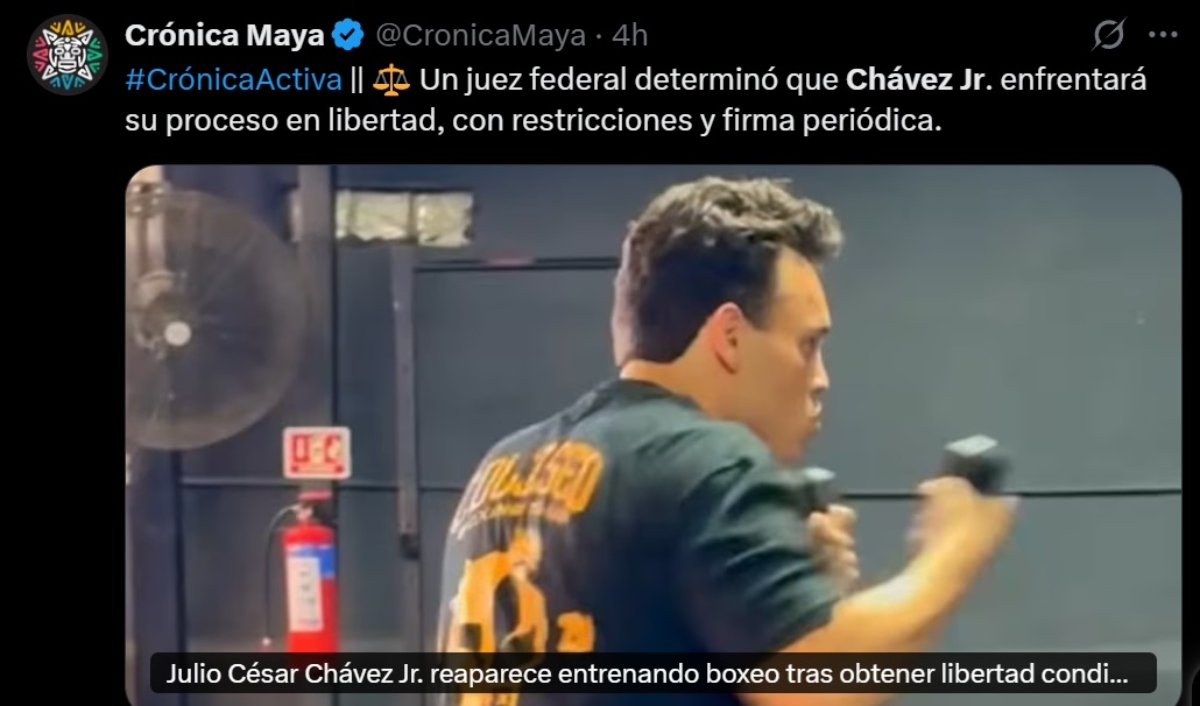
The Attorney General’s Office(FGR) filed an appeal before Judge Enrique Hernández Miranda.
They argue that the crimes charged against Chavez Jr. merit mandatory preventive detention according to the Mexican Constitution.
The appeal was referred to a Collegiate Court, which will decide whether to confirm or revoke the probation.
Legal defense position
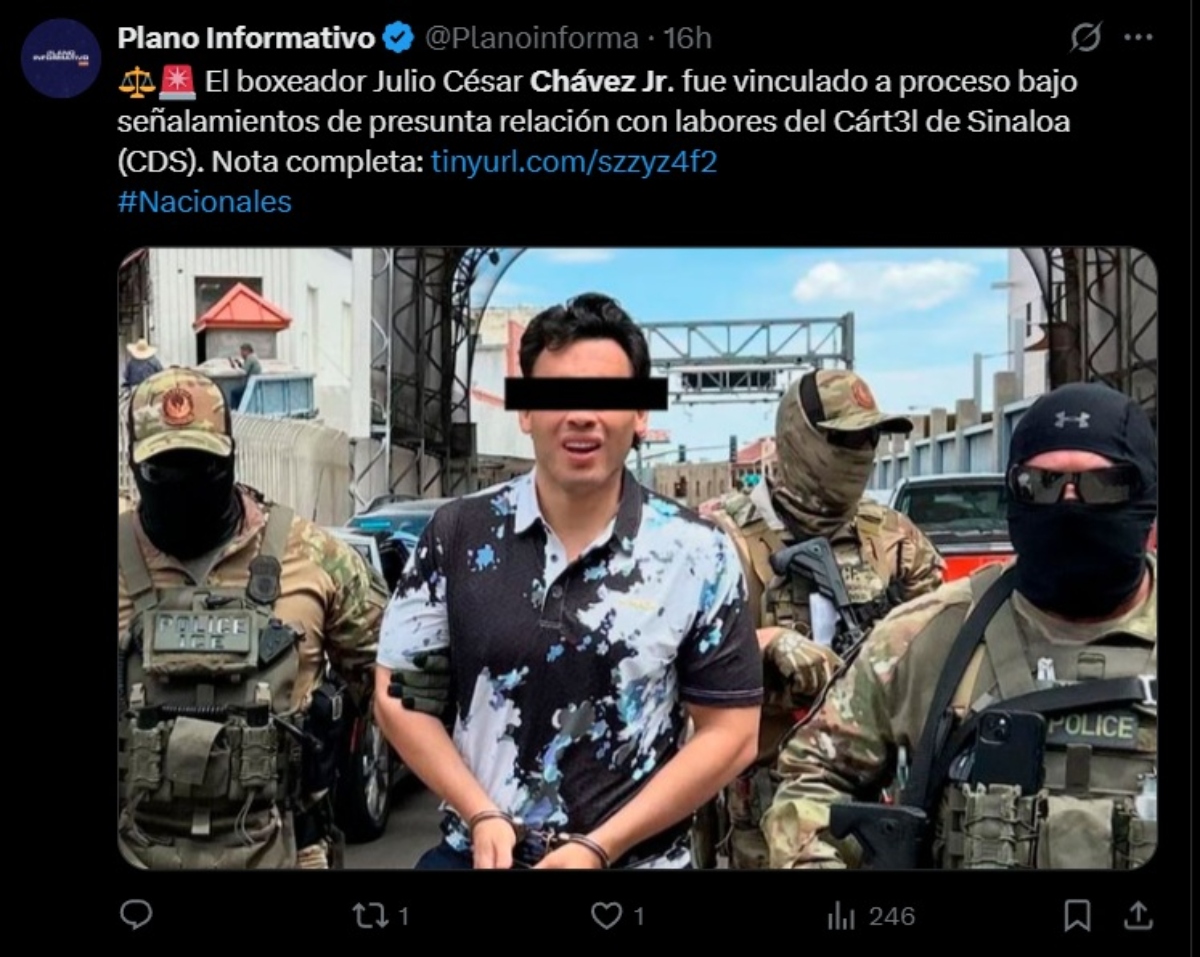
Chavez Jr.’s defense attorney, Ruben Fernando Benitez Alvarez del Castillo, criticized the FGR’s accusation as based on “anecdotes and speculations”, without solid evidence.
He asserted that no hard evidence has been presented and that the judge weighed indications, not proven facts.
He also noted that the complementary investigation has a term of three months and the next hearing is scheduled for November 24, 2025.
La apelación fue turnada a un Tribunal Colegiado
QuéOnnda.com
The FGR file would include at least 21 pieces of evidence -among personal objects, messages and links between Chávez Jr. and members of “Los Chapitos”-, although the defense questions them for lacking legal support.
What about Chavez Jr. now?
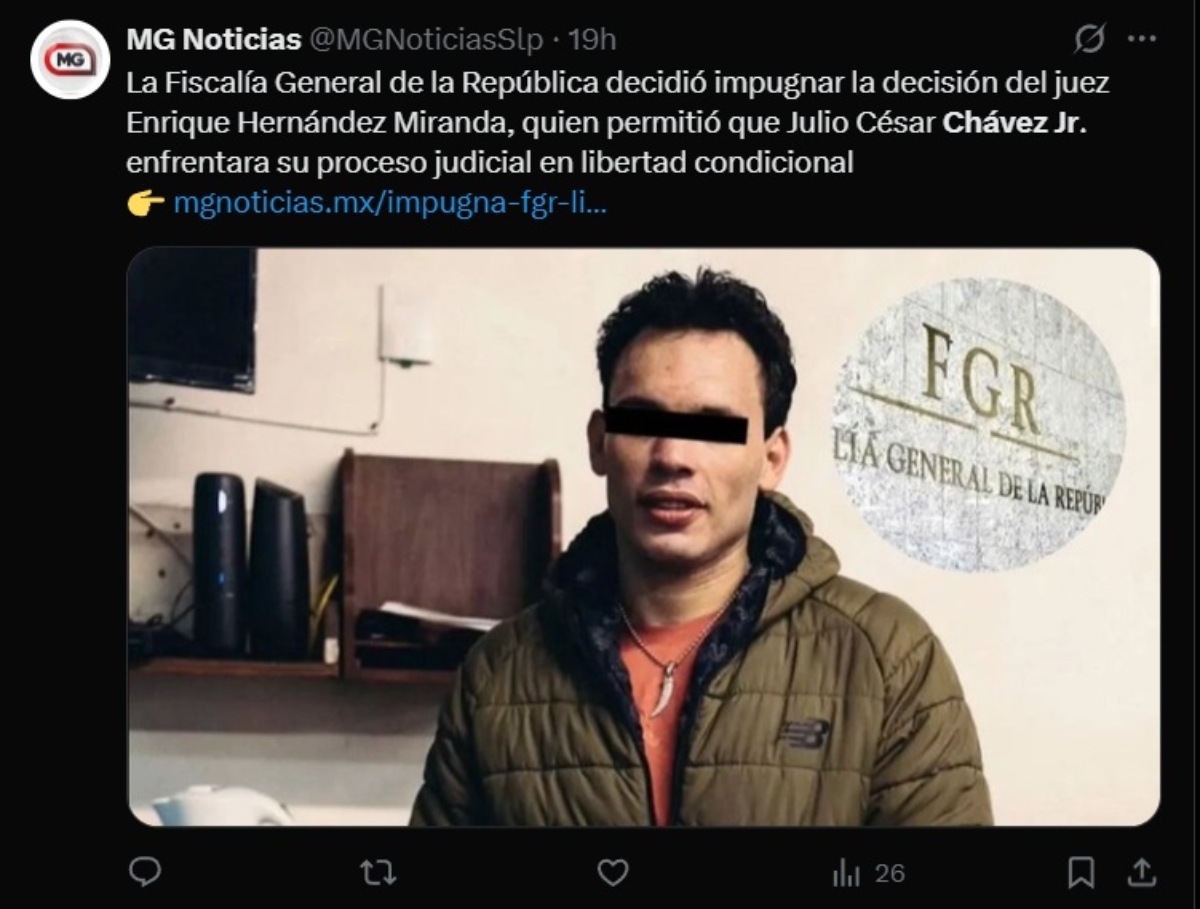
While awaiting the Collegiate Court’s ruling, Chavez Jr. continues his routine beyond prison.
He was seen resuming training at a Hermosillo gym after his parole.
What should the U.S. Hispanic community know?
If you are following the case, remember that it is in the hands of federal authorities in Mexico.
Chavez Jr. remains free for now, but his status could change depending on the court’s decision.
The judicial process is ongoing until at least November 24, 2025.
For more information, visit QuéOnnda.com.



